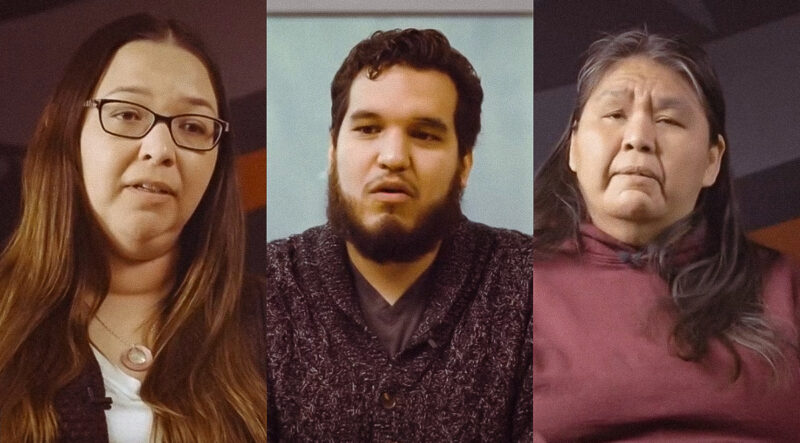Aquaculture: We are not being heard say First Nations
Speeches and vows made on National Indigenous Peoples Day ring hollow to salmon farming First Nations in BC.
By Fabian Dawson
SeaWestNews
Every June 21, on National Indigenous Peoples Day, Canada comes together to recognize the history, heritage and resilience of First Nations, Inuit and Métis.
The longest day of the year, which heralds the summer solstice, is also a time which brings into sharp focus the reality of colonialism and its associated indignities that were forced on Indigenous peoples.
From coast-to-coast, flags are raised, and events are held to highlight indigenous art and culture with politicians vowing that what happened before, will not happen again.
“When the strongest institutions in the country tried to stamp out Indigenous cultures, languages, and ways of knowing, Indigenous communities persevered,” trumpeted Prime Minister Justin Trudeau.
For several First Nations in British Columbia, which have dragged themselves out of a dark era of depression, poverty, and suicides by partnering with salmon farming companies, today’s speeches about ‘healing wounds of the past’ and ‘walking forward together’ ring hollow.
Their plans for self-determination and economic independence have been hijacked by urban-based activist groups who seem to have convinced Federal Fisheries Minister Joyce Murray that farming salmon in their territorial waters is a bad thing.
Murray and the Trudeau Liberals, eager for the activist vote, have ignored their own government scientists, court rulings, traditional knowledge and a wealth of studies that show farming salmon in BC’s oceans have less than a minimal impact on migrating wild stocks.
More importantly, they have turned their backs on 17 First Nations in BC which have a variety of agreements and business arrangements with finfish aquaculture companies resulting in 78% of all salmon farmed in the province falling under a beneficial partnership with a First Nation.
The government is currently working on a plan to transition ocean-based fish farms that will impact more than 4,700 jobs and $1.2 billion in economic activity annually, once again decimating the way of life in BC’s indigenous coastal communities.
Isaiah Robinson, an elected councillor of the Kitasoo Xai’xais First Nation and general manager of its economic development corporation said Minister Murray is ignoring First Nations voices and has demonstrated that she can’t be trusted.
The Kitasoo/Xai’Xais began farming and processing salmon in the late 1980’s, forming a partnership for the business with Mowi in 1998 – the first agreement developed by a salmon farming company and a First Nation in British Columbia.
“The Minister has her own agenda, and it doesn’t follow proper science or proper consultation with stakeholders, and it’s just not acceptable…she does not hear us,” he said.
Chief Chris Roberts of the Wei Wai Kum First Nation has accused Murray of denying First Nations the ability to determine for themselves whether they want salmon farming in their traditional territories.
“No…this minister does not seem to grasp what real reconciliation means when it comes to aquaculture and salmon farming” Roberts told SeaWestNews at a recent Vancouver conference celebrating Indigenous partnerships.
The BC-based Coalition of First Nations for Finfish Stewardship (FNFSS) has accused Murray, who is ideologically opposed to open-net pen aquaculture, of “cherry picking” the issues she will deal with when it comes to reconciliation.
In a recent video, coalition members have called on the Federal government to hear their voices, respect their jurisdictions and not take actions that would remove salmon farms from their territories.
“Ottawa doesn’t see us because we’re just somewhere on a piece of paper,” said Terra Taylor, of Hope Island’s Tlatlasikwala First Nation near Port Hardy.
Councillor Marilyn Morash of the Quatsino First Nation on the west coast of northern Vancouver Island said the government hasn’t acknowledged the local impacts of salmon farms closures in her area.
“In every conversation we have now, we have this constant fear that what we’re saying isn’t being heard, and our messages aren’t being brought forward…we don’t feel heard,” she said.
Most of what happened before comes down to Indigenous communities not being heard as decisions about their lives and livelihoods were being influenced by outsiders and were being made thousands of miles away, say First Nations leaders fighting to keep their salmon farms.
“Our federal politicians insist they are listening…they may be listening, but they need to start hearing us,’ said Robinson of the Kitasoo Xai’xais First Nation.
The BC Salmon Farmers Association (BCSFA) said it will respect the decisions of First Nations regarding the future of salmon farming in their territories.
“Our sector is committed to rights, title, and self-determination of the Nations whose territories we operate in and all Nations from coast to coast to coast,” said Brian Kingzett, executive director of the BCSFA.
(Screengrab images from a video featuring Marilyn Morash of the Quatsino First Nation (l) Isaiah Robinson of the Kitasoo Xai’xais First Nation (centre) and Terra Taylor of the Tlatlasikwala First Nation)

